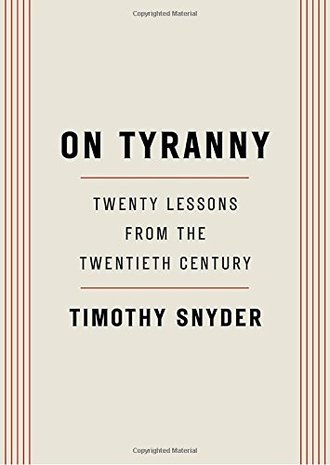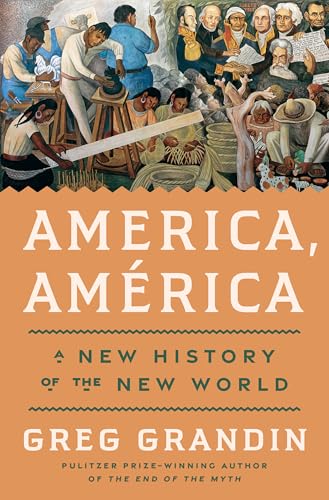Review of ON TYRANNY
by Johny McFliggen, PhD Literature & Business, Oxford
In "On Tyranny," Timothy Snyder presents a slender yet potent treatise, pulling history's most foreboding lessons from the 20th century and serving them to our current age, as if to say, "Those who cannot remember the past are condemned to repeat it." But Snyder doesn't just echo Santayana’s famed aphorism; he meticulously unpacks it, wielding his historian's scalpel with precision.
Snyder's academic pedigree is evident throughout the book. His expertise in Central and Eastern European history provides a fertile ground for the narrative's roots. As I delved into the twenty lessons, I found myself imagining Snyder as a time-traveling Cassandra—an erudite prophet warning us of the perils that loom should we remain complacent. His prose is not merely urgent; it’s practically urgent, as if he's handing us a manual for a democracy that has been habitually misused and is now on the brink of malfunction.
The book’s brilliance lies in its accessibility. In an era where our intellectual diet is often constrained by character limits and sound bites, Snyder offers a full-course meal in the form of succinct chapters that are both digestible and nourishing. This brevity, which some critics have mistaken for oversimplification, is in fact its greatest strength. Snyder distills complex historical narratives into actionable insights. The lessons read like a script for a political drama that’s all too real, reminiscent of Orwell’s dystopian warnings, yet grounded in the tangible reality of historical precedence.
Comparisons to Hannah Arendt’s "The Origins of Totalitarianism" are inevitable and somewhat fitting. However, while Arendt provides a voluminous exploration into the mechanics of totalitarian regimes, Snyder offers a pocket guide—a sort of "Totalitarianism for Dummies," if you will. His approach is less an academic exercise and more a call to arms for citizens of democracies teetering on the edge.
Critics have noted the book’s focus on recent political landscapes, particularly referencing its relevance during the Trump administration. However, to view "On Tyranny" solely through the lens of contemporary American politics is to miss its universal appeal. The lessons Snyder imparts are evergreen, applicable to any era where democratic ideals are threatened by authoritarian whispers.
While some might lament its lack of major literary accolades, the book’s true award is its infiltration into classrooms and its role in shaping public discourse. In this sense, "On Tyranny" is less a book and more a movement—a manifesto for the modern age that implores us not to repeat the mistakes of our forebears.
In conclusion, Timothy Snyder has given us a vital resource—a compass for navigating the stormy seas of modern politics. It is a clarion call to vigilance, a reminder that democracy requires active participation and relentless safeguarding. As an intellectual exercise, it invigorates; as a practical guide, it empowers. If you haven't yet picked up this piece of literary resistance, consider it your civic duty to do so.
Purchase Link: ON TYRANNY on Amazon



